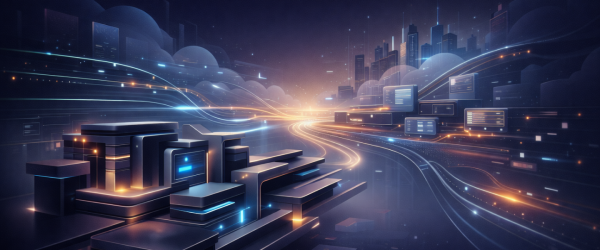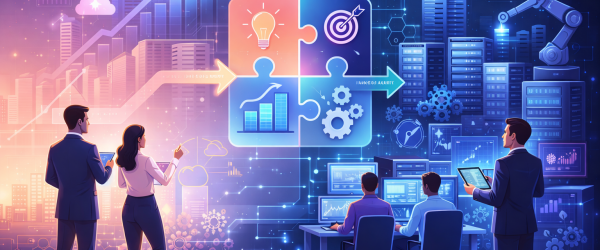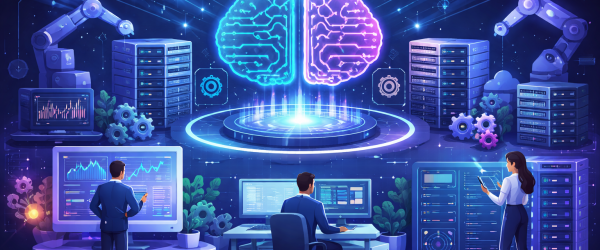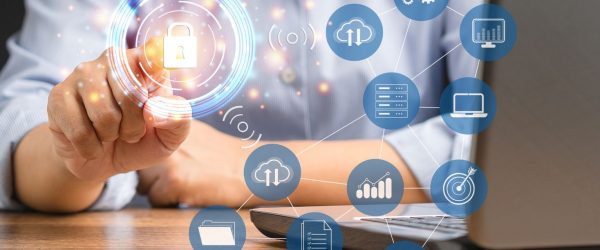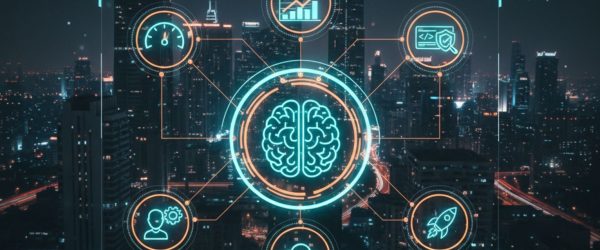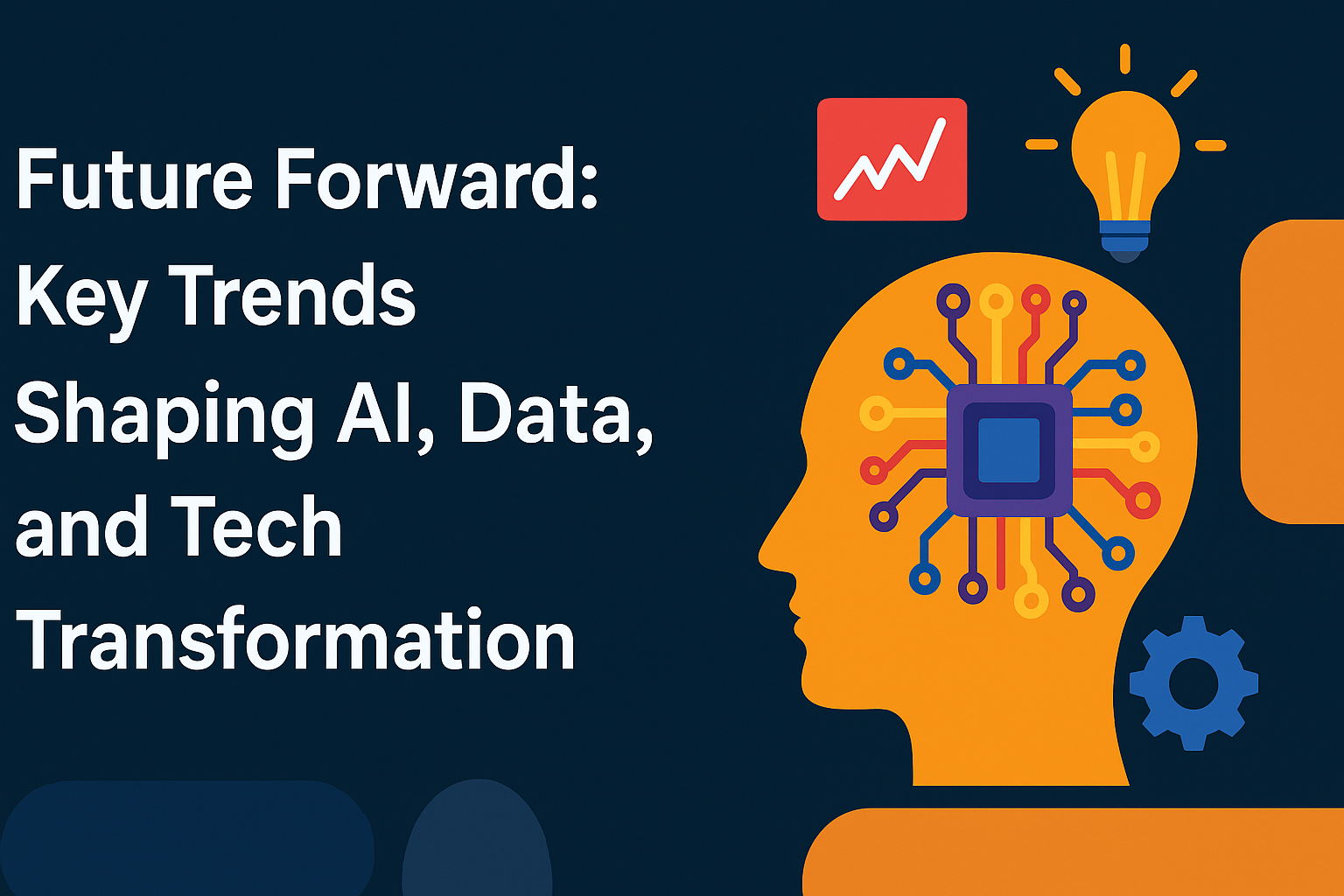
Introduction
Why Understanding Tech Trends Matters
Technology is moving faster than ever before. Blink, and you’ve missed the next big thing. Whether you’re a business leader, a developer, or just a tech enthusiast, keeping up with AI, data, and digital transformation isn’t optional anymore—it’s a must.
The Evolution We’ve Witnessed So Far
From early machine learning models to today’s generative AI, we’ve come a long way. Cloud computing reshaped IT infrastructure, while mobile-first strategies made user experience king. But we’re only getting started.
The Rapid Rise of Generative AI
From Novelty to Necessity
Just a few years ago, tools like ChatGPT and DALL·E felt like magic. Now? They’re in the business toolkit. Generative AI has shifted from hype to high-impact.
How Businesses Are Leveraging Generative AI
Content Creation, Design, and Coding
Marketers use AI to draft blog posts (like this one). Designers create ad visuals in seconds. Developers generate boilerplate code or even debug with AI assistance.
Personalized Customer Interactions
From AI chatbots to dynamic email content, personalization is scaling like never before—and it’s all driven by data-fed AI engines.
Data is the New Oil—Refined by AI
How Data Fuels Modern Innovation
Without data, AI is useless. But raw data alone won’t cut it. What matters is how well you refine, analyze, and use that data to drive decisions.
The Shift from Big Data to Smart Data
It’s not about collecting everything—it’s about collecting the right data. Smart data strategies focus on relevance, speed, and actionable insights.
Edge Computing is Gaining Ground
Why Centralized Cloud Isn’t Always Enough
Cloud computing brought us flexibility and scalability, but latency and bandwidth costs still haunt us. That’s where edge computing steps in.
Benefits of Moving Computing to the Edge
Faster processing, reduced latency, and enhanced privacy. Think self-driving cars or remote industrial sites where real-time decisions are critical.
AI-Powered Automation Is Evolving
From Task Automation to Decision Automation
We’ve moved past automating repetitive tasks—now AI makes decisions. Whether it’s financial forecasts or customer service routing, machines are thinking ahead.
Impact on Jobs and Workforce Skills
Will AI steal jobs? Yes—and no. It’ll eliminate some roles but also create new ones. The key is reskilling and shifting to value-driven work.
The Role of Ethical AI and Responsible Tech
Navigating Bias and Fairness in AI Systems
Bias in AI isn’t a bug—it’s a reflection of our data. Solving it means designing systems that are transparent, inclusive, and accountable.
Regulatory Frameworks and Industry Standards
Governments are catching up. From the EU AI Act to US policies, regulation is coming fast. Organizations must build ethics into their tech stack now.
Quantum Computing: A New Frontier
What Is It and Why It Matters
Quantum computing isn’t just faster computers—it’s a whole new paradigm. It could revolutionize cryptography, drug discovery, and climate modeling.
Current Milestones and Future Applications
Companies like IBM, Google, and startups are racing to hit quantum advantage. While we’re not there yet, the groundwork is being laid.
Cybersecurity in the Age of AI
Smarter Threat Detection
AI can analyze threats in real time, flag anomalies, and predict attacks before they happen. Cybersecurity is getting proactive.
The Double-Edged Sword of AI in Security
But there’s a flip side—hackers use AI too. It’s a race between innovation and infiltration, and staying ahead is the only option.
Human-AI Collaboration
Augmented Intelligence vs. Artificial Intelligence
Forget “man vs. machine.” Think “man with machine.” Augmented intelligence enhances human skills rather than replacing them.
Enhancing Human Creativity and Productivity
Writers brainstorm faster. Architects test designs instantly. Doctors get second opinions from algorithms. That’s the power of synergy.
Data Privacy and Ownership Take Center Stage
The Era of User-Controlled Data
People want control over their data—and rightfully so. Consent-first models and blockchain-based identity are gaining traction.
The Impact of Privacy Regulations
From GDPR to CCPA, data rules are tightening. Brands must rethink how they collect, store, and use personal data—or risk losing trust.
Interconnectivity and IoT
How IoT Devices Are Shaping Smart Ecosystems
Your fridge, car, and thermostat are probably already “smart.” IoT is connecting everything, creating real-time ecosystems of efficiency.
AI and IoT: A Symbiotic Relationship
AI analyzes IoT data, while IoT feeds AI. The result? Smarter cities, energy-efficient buildings, and responsive environments.
AI in Industry-Specific Use Cases
Healthcare, Finance, Retail, and Education
AI reads X-rays, detects fraud, recommends products, and tutors students. Sector by sector, it’s making things faster, better, cheaper.
Real-World Examples of Transformation
Startups are disrupting supply chains. Hospitals are reducing diagnostic errors. Banks are cutting manual reviews. The impact is everywhere.
Democratization of AI Tools
Low-Code and No-Code Platforms
You no longer need to be a coder to build an AI model. Platforms like Bubble, Zapier, and Notion AI are turning everyone into creators.
Making Tech Accessible to Non-Techies
This shift empowers small businesses, solopreneurs, and creatives—leveling the digital playing field in ways we’ve never seen before.
Tech Talent: The Skills of the Future
Reskilling and Upskilling for a Digital Future
Tomorrow’s workers need to think critically, learn continuously, and adapt quickly. Tech isn’t the only skill—adaptability is king.
Importance of Soft Skills in Tech Roles
AI can code, but it can’t empathize. Human traits like communication, leadership, and creativity are more vital than ever.
What the Future Holds: Predictions for the Next 5 Years
Emerging Technologies on the Horizon
Neural interfaces, spatial computing, synthetic biology—these aren’t sci-fi anymore. They’re knocking at our doors.
Preparing for Continuous Change
The only constant? Change. Future-ready companies embrace experimentation, agility, and lifelong learning.
Conclusion
We’re standing at a tech crossroads where AI, data, and digital tools are rewriting the rules of business, creativity, and society. The trends we’ve explored aren’t just buzzwords—they’re blueprints for the future. Embrace them, invest in learning, and stay adaptable. The road ahead is wild, but full of promise.
FAQs
Q1. What industries are most impacted by AI and data transformation?
Healthcare, finance, retail, manufacturing, and education are seeing major shifts thanks to AI-driven insights and automation.
Q2. Is AI going to replace human jobs entirely?
No, but it will transform many roles. Jobs will evolve, with more focus on creativity, strategy, and human interaction.
Q3. How can small businesses benefit from emerging tech?
Through affordable AI tools, automation, and low-code platforms, even small players can scale like the big guys.
Q4. What’s the difference between big data and smart data?
Big data is about volume. Smart data is actionable, relevant, and timely—leading to better decision-making.
Q5. Why is ethical AI important?
Because unchecked AI can reinforce bias, invade privacy, and cause harm. Responsible tech ensures fairness and trust.

